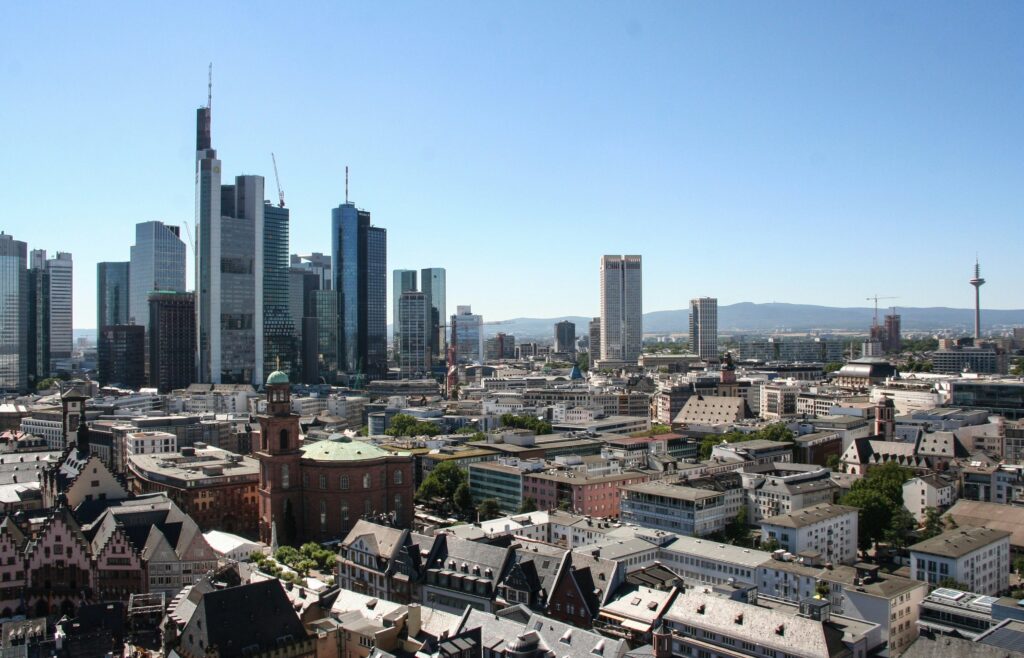German stock markets fell sharply on Monday after U.S. President Donald Trump announced new tariffs on European imports. The DAX index, which tracks major German stocks, opened almost 10% lower. Though it regained some ground later, it remained deeply in the red. The index lost nearly 20% over the past week, wiping out all the gains made since October.
This drop caused widespread concern. Analysts warn that these new tariffs could harm Germany’s economy, which is Europe’s largest. This has raised fears of a global recession. As the markets reacted, many economists predicted that the impact of the tariffs would be lasting and severe.
Growing Fears of a Recession
The sudden fall in the stock market reflects broader concerns. The tariffs, set at 20% for EU imports, could hurt industries across Europe, especially in Germany. Sectors like manufacturing and automotive could be particularly affected. These industries are vital to Germany’s economy.
Some analysts fear the tariffs could disrupt global supply chains. This could lead to higher costs for goods, reduced demand, and job losses. All these factors could contribute to a global economic slowdown.
EU Leaders Meet to Discuss Tariffs
In response to the tariffs, 27 EU trade ministers gathered in Luxembourg to coordinate their response. European Commission President Ursula von der Leyen said the EU is ready to negotiate with the U.S. but insists on a “fair deal” for all sides. She emphasized that the EU wants to reduce tensions while protecting its own interests.
Chancellor Olaf Scholz of Germany is also active in the discussions. His office confirmed that he has been in close contact with European leaders and key industries in Germany. Spokesperson Steffen Hebestreit said that Scholz is not seeking a trade war but is focused on protecting German businesses from harm.
Deutsche Bank: Market Volatility Will Continue
Deutsche Bank also weighed in on the situation. In a report shared with Euronews, the bank said the damage from the U.S. tariffs is “undeniable.” However, the full impact is still unclear. The bank believes market volatility will continue until there is more clarity about U.S. actions.
Despite this, Deutsche Bank is cautiously optimistic. The bank suggests that many of the risks related to the tariffs are already reflected in current market conditions. It expects fewer unknowns to arise in the near future, though uncertainty remains high.
Global Stock Markets React to the U.S. Decision
The impact of the tariffs extends beyond Germany and the EU. Markets around the world reacted negatively to the news. European and Asian stock markets also saw losses, with global stocks losing trillions of dollars in value since the U.S. announcement on April 2.
The tariffs could cause problems in many industries worldwide. As a result, financial institutions like JPMorgan Chase have raised their recession forecasts. They warn that the tariffs could lead to higher costs, lower consumer spending, and less investment. This could push the global economy toward a downturn.
Germany’s Economy Faces New Challenges
Germany had recently seen a return of optimism. After long negotiations, coalition parties agreed on a massive infrastructure and defense spending package. This was expected to boost the economy and create new jobs. However, the tariffs have overshadowed these positive developments. The fear now is that Germany’s economic growth could stall due to the trade tensions.
Large German companies, including car manufacturers and exporters, depend on trade with the U.S. and other countries. The new tariffs threaten to hurt these industries. As a result, many are concerned that Germany’s competitive edge in the global market could diminish.
What’s Next for Germany and the EU?
As the situation develops, Germany and the EU are closely watching events. EU leaders hope to reach an agreement with the U.S. to avoid further damage. However, negotiations may take time, and the risks remain high.
The global economy is fragile, and countries must navigate an increasingly complex trade environment. For now, the focus is on the ongoing talks. Many hope for a solution that can prevent further harm to the world economy.
This situation shows how interconnected global markets are. Decisions made in one country can have far-reaching effects. It also highlights the challenges faced by countries in managing their trade relationships.
Uncertainty Continues
For now, uncertainty remains high. The EU and U.S. will likely continue their discussions, and the future of the tariffs is still unclear. What is certain is that the global economy is facing new challenges. The full impact of these tariffs will only become clear in the coming weeks and months.


